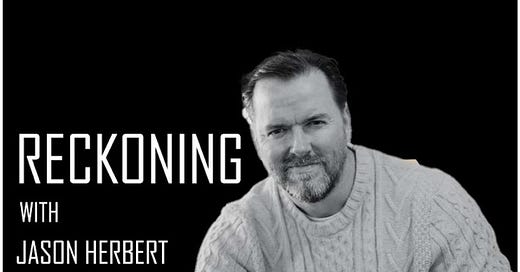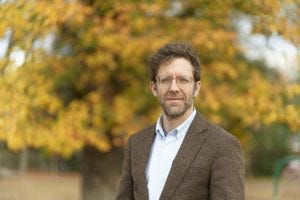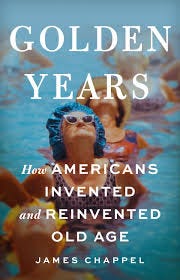It’s almost New Year’s. That’s right, another year. I don’t know about you, but somewhere along the lines, I started thinking through things I used to take for granted. I think about how my knees will react before I play basketball. I don’t like driving at night. I can barely see the damn line when I try to tie on a new fishing lure. Folks, I am getting older.1 You probably are too. And so are our parents. And that means not thinking about what it means to be getting older but thinking about how we think about getting older. And what may surprise you, there have simply not been a lot of histories written about the process of aging in the United States. Thankfully, I have just the podcast for you.
This week Dr. James Chappel drops by Reckoning with Jason Herbert to talk about how Americans have conceptualized the process of aging and how ideas about the debts our society owes the elderly have changed over the last century. We also talk about social security, medicare, retirement, and what to expect from the next presidential administration. Oh, we even talk about both retirement communities like the Villages, and a mutual love of Carousel of Progress at Walt Disney World. This is a really eye opening conversation about a book I really took a lot away from.
In the clip below, James dispels popular notions about Social Security and talks about its great success in American society:
About our guest:
James Chappel is the Gilhuly Family Associate Professor of History at Duke University. He works on the intellectual history of modern Europe and the United States, focusing on themes of religion, gender, and the family. He has published two books and published widely in both scholarly and non-scholarly sites (The New York Times, The Nation, and more). At Duke, he is committed above all to History undergraduates, especially majors, and to the pursuit of prison engagement opportunities. He is currently co-chair of the Prison Engagement Initiative at the Kenan Institute for Ethics, and founded the Duke-in-Prison lecture series.
His most recent book is called Golden Years: How Americans Invented and Reinvented Old Age (Basic Books, 2024). It is a history of aging, health, and disability in the USA from 1920 to the present. It appeared in November 2024 and has been widely reviewed in outlets like The New Yorker and the Los Angeles Times.
His first book, Catholic Modern (Harvard, 2018), asks about the transformation of the Catholic Church in 20th century Europe. How did Catholics, long affiliated with monarchism and anti-Semitism, come to accept liberal democracy and capitalism? How, in a word, did Europe's Catholics become modern? The book argues that the major transformation took place in the 1930s and 40s. In those crucial years of violence and war, Catholics decided to stop trying to conquer society as a whole, and start trying to salvage "the family" as the source of moral authority and political order. The book thus explains how and why Catholics became buttresses of the postwar democratic order, and also explains the new centrality of gender and family ethics to Catholic life, thought, and policymaking.
His current research project concerns C.S. Lewis and the Second World War. This brings together previous interests in religion, war, and family.
For more information, visit his personal website.
Find his book:
Golden Years: How Americans Invented and Reinvented Old Age
And without further ado, find the episode below:
And if you like this new podcast, please don’t forget to like and subscribe. Maybe even leave a review on Apple Podcasts.
Thanks for being here and best wishes for a wonderful new year.
Your friend,
Jason
This is complete bullshit, by the way.





